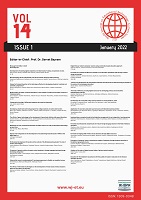Games for Science Education: is this technique effective for developing students' creativity and scientific competence?
Games for Science Education: is this technique effective for developing students' creativity and scientific competence?
Author(s): Akmaral Daniyarova, Alwaely Suad, Elena Vecherinina, Marina Seluch, Vladimir AnanishnevSubject(s): Educational Psychology, Cognitive Psychology, Pedagogy
Published by: Birlesik Dunya Yenilik Arastirma ve Yayincilik Merkezi
Keywords: chess; cognitive processes; natural science education; pedagogical methods; performance; play activity; thinking;
Summary/Abstract: The authors examine the pros and cons of games in the context of increasing students' creativity and scientific competence. Research materials and methods consisted of two tests. The first included the use of 7 pedagogical methods that are valid for the mental diagnosis of students: speed of thinking; method of thinking flexibility; method of determining the level of imagination and others. After the first testing, the training program included techniques for playing chess (in the classroom and online) and sand animation (in the classroom). Re-testing was carried out to assess the effectiveness of the programs. The study results showed that play activities improve the quality of student learning both in the classroom and online and enhance the functioning of many processes, including the speed and flexibility of thinking, memory capacity and attentiveness. This study demonstrates that play activities used in the educational process can play a positive role in teaching students. Further research needs to focus on studying the role of age, gender and race in play activities and determine how these factors affect performance.
Journal: World Journal on Educational Technology: Current Issues
- Issue Year: 14/2022
- Issue No: 1
- Page Range: 28-41
- Page Count: 14
- Language: English

